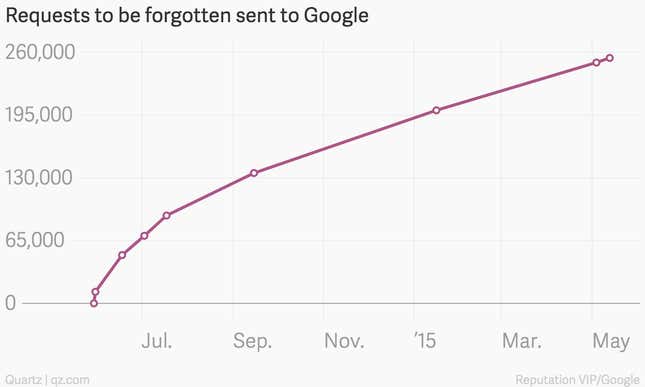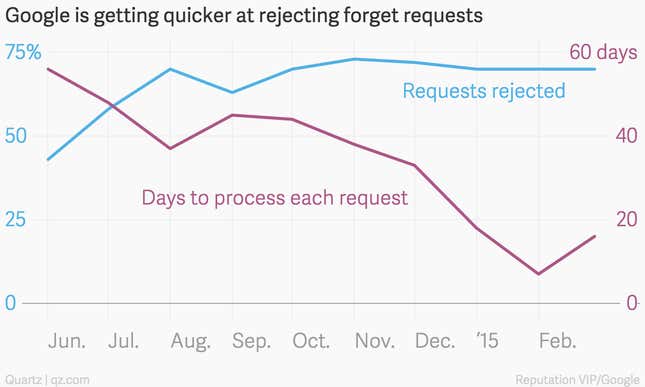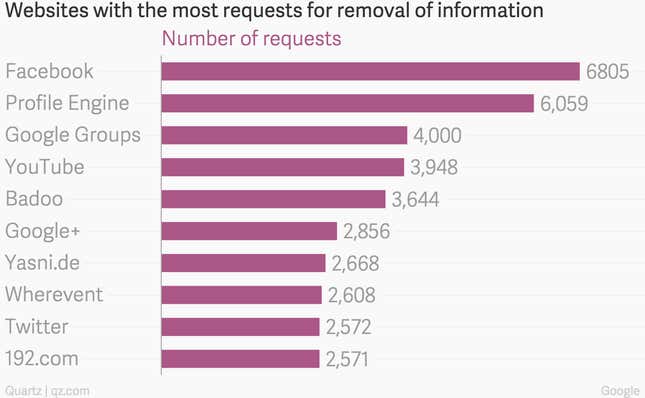It’s been a year since the EU’s Court of Justice ruled that Google and other search engines must give Europeans the ability to request that information about them be removed from search results. According to Google, the company has received over 250,000 requests for information to be removed from search results over the last year, and it has analyzed nearly one million websites to see what should be removed.
Reputation VIP, a site for controlling one’s reputation online, compiled data on the first year of the law being in place and how Google has responded. Here are the highlights:
Requests have started to taper off

Google received an average of 1,500 removal requests per day in the first three months after its “right to be forgotten” service went online, according to Reputation VIP. That number has dropped to about 500 requests per day, which while fewer, will still add up to about 180,000 requests per year.
Google is rejecting most of the requests to be forgotten

Google rejects nearly three quarters of the requests it gets for information to be removed, and it’s gotten its rejection system down to a science. Reputation VIP says Google’s average response time for a request is now just 16 days. According to the Court of Justice, individuals can request to have any information about themselves that is “inadequate, irrelevant or no longer relevant” removed. It’s up to the search engines to decide what qualifies. According to the BBC, there are at least 50 outstanding cases in which requestors believe Google should have removed information but did not.
Over half of all the requests come from the UK and Germany

It seems the British and the Germans are most interested in removing information about themselves from the web, with 50.7% of all requests coming from the two countries. In Finland, on the other hand, Google seems to be winning the battle to keep all its indexed information online: a Finnish a court just ruled in favor of the company, saying it does not need to remove a series of results relating to a local man’s business “blunders,” Ars Technica reported.
Facebook is the worst offender, apart from Google

There have been more requests to remove information from Facebook than any other site, according to Google. However, Google itself is the actually worst offender, if you count of all the properties it owns from the list above, including Google Groups, Google+, and YouTube.
